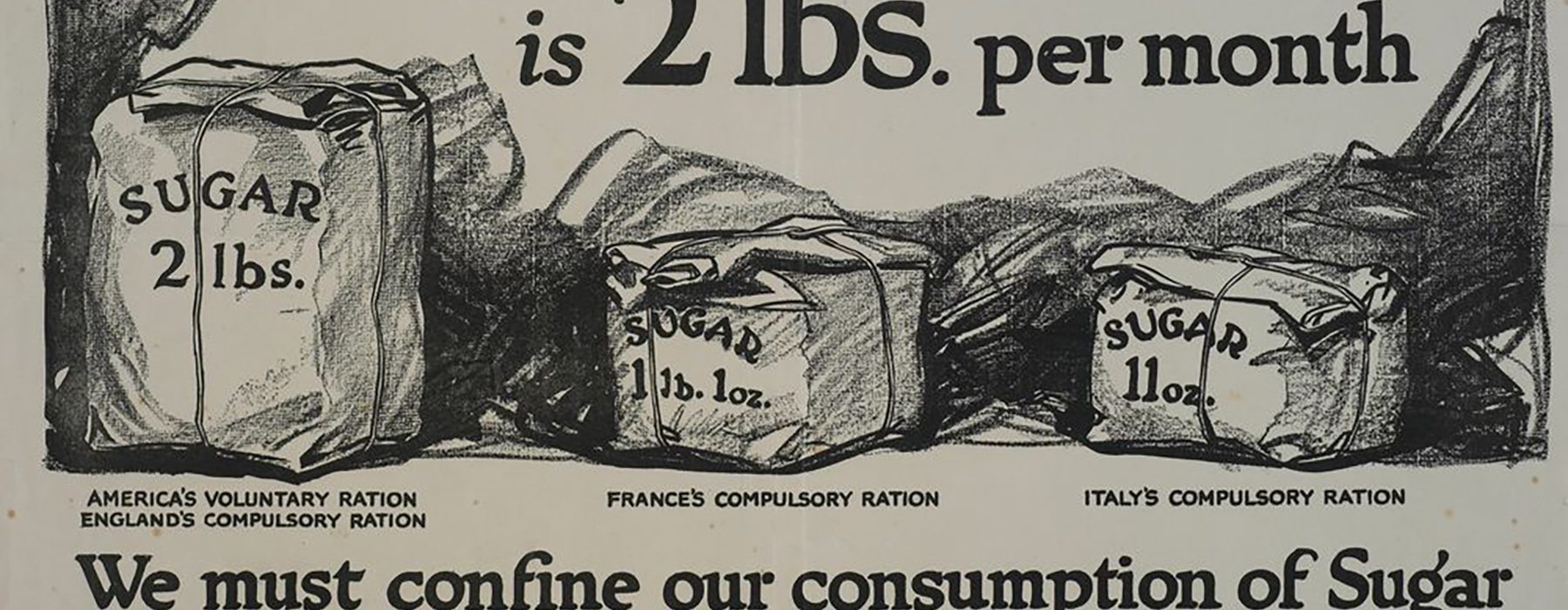December 2, 2020 // Perspective
If COVID-19 restrictions seem like a sacrifice, they have nothing on the rations of WWII
Tired of restrictions imposed to control the COVID-19 virus, facemasks, social distancing, reduced hours at stores and closed offices? Will it ever end?
Americans have seen similar conditions and much worse. The United States entered World War II in December 1945, and the lives of almost all Americans were upended for more than three long years. Mandated rationing prevented everybody from buying on impulse, even necessities. People bought what the government allowed them to buy. Money was not the problem. It was the law.
Start with operating an automobile. Most citizens could purchase only three gallons of gasoline a week. People thought long and hard before they drove anywhere. My parents set priorities. Getting to Sunday Mass was first. Then came everything else.
Tires were made of natural rubber, most often grown in the Netherlands East Indies, now Indonesia, then overtaken by Japan. Japan sold no rubber to Dutch allies, including this country. Tires were precious. No new tires.
Congress imposed a national speed limit on highways, 35 mph, to save gasoline and to reduce wear and tear on tires.
Food was heavily rationed. Each household could buy one pound of coffee every five weeks. Brazil, an American ally, provided most of the coffee. The Germans disrupted merchant shipping on the Atlantic.
With one-half pound of sugar available per week, per family, few baked cakes or pies.
Beef, pork, lamb, butter, cheese, lard, shortening, food oils, processed foods (canned, bottled and frozen), dried fruits, canned milk, jams, jellies, preserves and fruit butter were restricted. Margarine was invented to substitute for butter. Cereals replaced meat-based pet food, but cereals for humans or livestock were rationed.
Game, poultry, fish, fresh fruits and vegetables were not rationed. Front lawns in cities became vegetable gardens. Chicken coups filled backyards. Rabbit, wild duck, venison, more fish and even squirrel went onto menus, but no new guns, ammunition or fishing lures were made.
No new cars were manufactured. Dealers only sold used cars, with bald tires, at a premium. Mechanics could not find parts. No new typewriters, bicycles, stoves, lawnmowers, rakes, shovels, locks, chains, wheelbarrows, refrigerators, washers, pots and pans, toys, basketball hoops, tools — even telephones, or anything else metal or with wiring — could be had.
Groceries sold canned goods. The empty cans were returned, along with opened bottles.
For travel, nobody drove. Besides the rationing of gas, the speed limit made car travel agonizingly slow. Air travel was rare. Trains were the preferred option, but soldiers, sailors or Marines likely filled the seats. Civilians were turned aside. Railroads lacked enough supplies, rolling equipment for freight or passengers and personnel.
City bus systems were overwhelmed. No new buses were built. Repairs were difficult. People stood in long, tiring lines in rain, hot sun, ice or dark for a bus. Silk, nylon and wool were hard to find. Coal and fuel for heating homes were rationed. People sat or slept in the cold. Undertakers had no metal caskets. Coastal cities were under blackout every night because enemy submarines, with bombs aboard, might target a light.
Everyone worried. Rumors had German missiles, already the scourge of Britain, on the way.
Toothache? Get to the dentist’s office at the crack of dawn and hope to be seen by the end of the day. Same at the doctor’s office. So many dentists and physicians were away at war. Druggists ran out of painkillers, antiseptics and therapeutics.
Taxes were raised. For quick cash, the government developed withholding, requiring businesses to add bookkeepers and pay their salaries. Everyone coped with red tape.
Rare was the family unrepresented in the military. Enlisted were 16 million people: 405,000 of them were killed in action; 671,000 were wounded, many incapacitated for life. Imagine the anxiety and grief.
History makes clear that nobody complained. Nobody revolted. Nobody gave up. Everyone cheerfully and willingly sacrificed to help each other, and to help the country survive, as an obligation and a privilege.
Msgr. Owen F. Campion is OSV’s chaplain. Visit OSVNews.com.
The best news. Delivered to your inbox.
Subscribe to our mailing list today.






